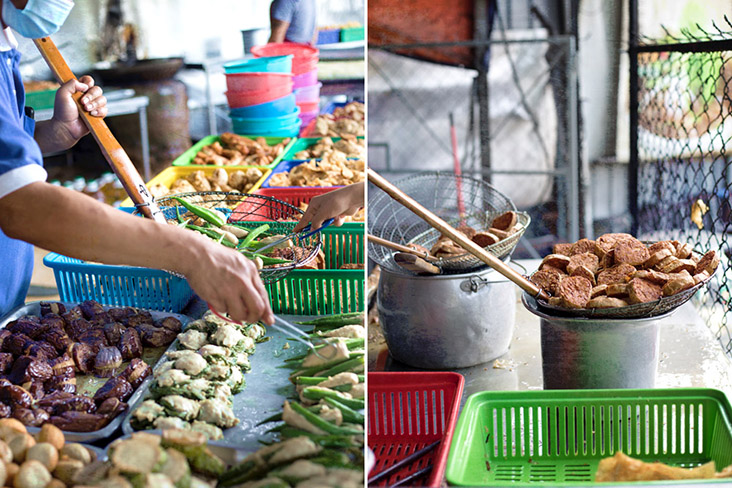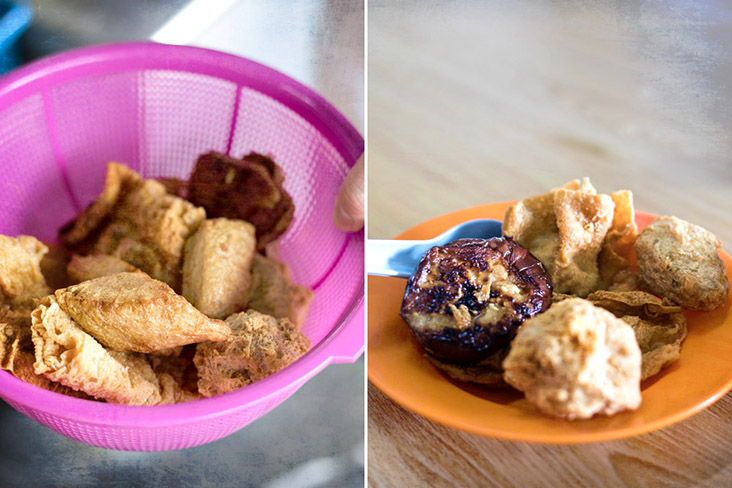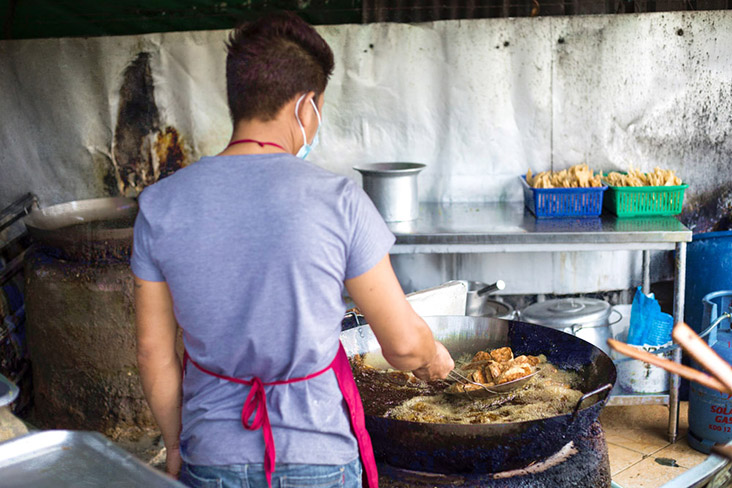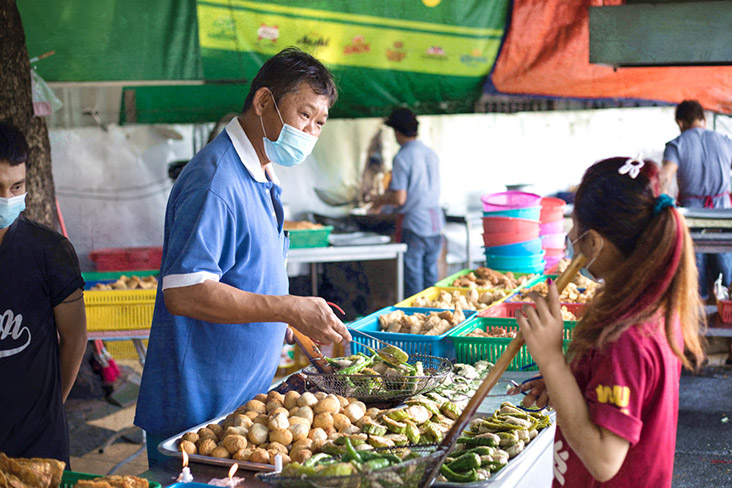COMMENTARY, Dec 14 — The colourful plastic baskets are filled with tiny treasures, each beseeching us to choose from them.
There are crispy wafers of fu chok (fried tofu skin) and thick rounds of bitter gourd. There are also red chillies and green lady’s fingers, all stuffed with fish paste.
There is the impossibly crunchy sar kok liew, a local delicacy of diced mangkuang (jicama) mashed with fish paste. And as you might have guessed by this particular type of yong tau foo, we are in Ipoh.
But why have we travelled to Ipoh for yong tau foo?
Sometimes the best journeys are the ones others lay down for us, paths others have walked before. Sure, it’s easy to be disappointed especially if we set our sights too high. But it’s not about seeking perfection.

This, if we would allow it, is about walking in someone else’s shoes, retracing their footsteps knowing far too well your experience will not be the same, but which ever is?
“It is impossible to step in the same river twice,” the Greek philosopher Heraclitus once said. “Ever-newer waters flow on those who step into the same rivers.”
So we make our pilgrimage to the Dai Shu Geok (literally “Big Tree Foot” in Cantonese) along Jalan King in Ipoh’s Taman Hoover. Not only has my trusty guide Ipoh Boy recommended this spot for the best yong tau foo in town but practically all our other Ipohan friends have suggested we stop by for a taste of how they enjoy their yong tau foo.
Here, Ipoh Boy informs me, yong tau foo is known as yong liew, which is a nice bit of local trivia. Fortunately beyond that slight difference in name, everything looks about the same: deep-fried or fresh morsels, most stuffed with fish paste, awaiting your selection before being carted off to be refried or blanched in hot soup.

My earliest memory of yong tau foo must be from my childhood, tasting it at various spots around my hometown of Melaka. Back then, it was always eaten in a bowl of soup with fat yellow noodles and lots of fried shallots and sliced green onions as garnish.
But the strongest recollection I have is when I would come up to KL during the school holidays. My aunt would bring me and my cousins to the famous one in Ampang. The tim cheong was so tooth-achingly sweet I would eventually swear off that for good, the way I would with tomato ketchup.
How we eat and how we change how we eat might well be a study in overcompensating, the way a frill-necked lizard would gape its mouth and spread out its brightly coloured gills to scare off intruders when it itself is the one that is frightened.
Or perhaps I have merely lost my taste for artificial sweetness and long for the less saccharine true sweetness of life.
I never returned to that yong tau foo place (I will always remember it as my aunt’s) as an adult. Tastes change. We learn that people grow apart, distance a great divide.

Relatives, after all, are only flesh and blood. Some of us, the fortunate ones, get to build our own family as we grow older and grow up. Our friends, far more loyal and more loving, make for a better family sometimes.
And so it is with my friends — my family — that I come here with. We are at the foot of the notorious tree, indeed sizable though not gargantuan by any means. (There are no trolls or giants hiding in its branches, waiting to snack on little boys who skip their tim cheong.)
We have come in two cars (it is a time of social distancing, after all) and see each other approaching the food court at almost the exact same time. We gather in front of the entrance to discuss which shop is the right one.
It is likely that they are both right, after their own fashion. Every shop has to be someone’s favourite, right? Like Neo in The Matrix, when he was offered the red pill or the blue pill by Morpheus, we can only pick one.

Here, however, there is no wrong choice. We will be happy wherever we go. Either choice will offer us fish balls and fried tofu skin, stuffed eggplants and lady’s fingers.
We enter, grab our tables, line up to select what we want. We hand our pickings over to the staff for them to fry the yong tau foo or warm them in soup; we order asam laksa, as piquant as the original in Penang, and “dry” noodles that arrive with enough soy sauce to stain our shirts if we aren’t careful.
Is this the best yong tau foo in town? Who knows? We have never been here before. Perhaps the answer doesn’t really matter and never did. This isn’t about rankings or reviews.

Food reviews can be callow and cruel, subjective by their very nature. Instead my friends and I smile at each other, joke and laugh loudly. This is a food experience, for better or for worse. This is family time.
We will share stories of our meal today with others, post pictures on social media or not; our other friends will make of this day, this meal, what they will.
Back to Heraclitus. The Greek philosopher who was credited with the phrase panta rhei (“Everything flows”) meant that it was no longer the same river and we are no longer the same person.
Yet the shapes of these nuggets of yong tau foo appear to be about the same as they ever were. The sizzle of the hot oil as a fresh batch is fried sounds familiar. The heat from the bowls of noodles as we cradle them gently to warm our hands, as we lower our heads and take a whiff, inhaling the aroma deeply...

… nothing has changed, not much, even if it’s never quite the same.
We have never been here before. Sure. But from Melaka to Ampang and now Ipoh, savouring yong tau foo has been about retracing a journey of a thousand steps, with more to come. Every day is a new miracle, every step we take a blessing.
For more slice-of-life stories, visit lifeforbeginners.com.






















